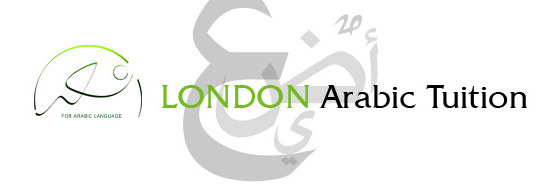Arabic is becoming a language that we need to know in the modern age. As inhabitants of the Middle East move to other countries, it becomes increasingly important that all cultures learn how to effectively interact with native Arabic speakers.
There are five main varieties of Arabic spoken today, Levantine Arabic being one of them. It is spoken mainly on the eastern Mediterranean coast in and around western Syria, Lebanon, Jordan, Palestine, and Israel. Native to Levant, Cyprus, this dialect of Arabic has strong Aramaic influence.
There are many reasons to learn Levantine Arabic, from conducting business effectively to being a savvy traveller. It’s important to note the different advantages of this fascinating language.
For Business
Since there are about 20 million people worldwide who speak this language, conducting business in the Middle East essentially requires some basic knowledge of Levantine Arabic. For example, although the official language of Jordan is Standard Arabic, Levantine Arabic is also widely spoken. In fact, Levantine Arabic is broken down into two further varieties of Arabic, South Levantine and North Levantine.
If you are conducting business with people from Israel, Palestine (between Nazareth and Bethlehem), Syrians in the Hauran Mountains, or in western Jordan, you should learn South Levantine. If you are conducting business with people from Syria, Lebanon, or Gaza and the West Bank in Israel, you should learn North Levantine. The great majority of these speakers are from Syria, at 8.8 million speakers of South Levantine.
It’s important to note that even though this dialect is widely spoken, it’s not widely written. You should definitely take Arabic courses to learn Standard Arabic for transcription—especially helpful in a business setting. But if you want to communicate on the same level as natives of Syria, Jordan, Lebanon, and Israel, you should learn the differences between Standard and Levantine Arabic. You might be more easily accepted by native speakers if you show an effort to learn their dialect, something that is especially helpful when you are conducting business or trying to get from one place to another without causing a fuss.
For Travel
It’s a given that basic knowledge of the local language gives travellers and tourists a leg up. If you intend to travel at all along the eastern coast of the Mediterranean, taking Arabic courses is a good idea. For example, if you’re in school in the UK and you intend on spending your gap year abroad near Syria, Jordan, or Israel, taking Arabic classes in London is precisely what you need. Just be certain that Levantine Arabic terms are part of the curriculum.
Knowing basic words like “hello,” “thank you,” and “where is…” are helpful for getting around as a traveller.
For Culture
Finally, learning Levantine Arabic is useful for anyone who wants to be considered “cultured,” but also for anyone interacting with populations of expatriate Levantine Arabic speakers. Many Levantine Arabic speakers are originally from the countries where this language is spoken, so you may not have to travel to these countries to come in contact with those who speak it. Learning basic phrases and grammatical structures can help you communicate with those in your community who speak this language. Taking Arabic courses, for example, might open the door for you to communicate with people around you that you never could before.
Would you learn Levantine Arabic?
Arabic courses are, just as any language course, the fastest way to get started learning Levantine Arabic. If you live in the UK, Arabic classes in London are just the ticket. Keep in mind that Levantine Arabic is considered a category four in its level of difficulty, out of four levels. That means that it may take about 88 weeks (over a year and a half) to master this language even when you are taking Arabic courses regularly.
The reason most category four languages are so difficult for native English speakers is due to extreme differences in the writing systems. Since Levantine Arabic has no written form, the difficulty lies primarily in pronunciation. If you have already taken an Arabic course, for example, you probably have a good enough grasp on Standard Arabic to start learning phrases in Levantine Arabic for business, travel, or culture. If you feel that Levantine Arabic is the dialect for you, don’t hesitate to get in touch with one of our tutors.




Thanks for this interesting article, you may likes my first short story in Levantine Arabic:
https://amzn.to/2HxraJb